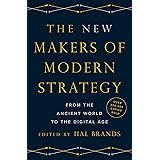"What we need is military strength without militarism and realistic advancement of the structure of world peace without self-deception to which pacifists are liable."
So ends a book that was awarded a Pulitzer Prize for history in 1947. It was fittingly introduced by Vannevar Bush, since Phinney was the official historian of the Office of Scientific Research and Development (OSRD) during the Second World War. Bush helped bring this organization into being. OSRD served to harness the extraordinary abilities of U.S. civilian technologists from academia and industry to serve an enormous breadth of challenges: antisubmarine technologies; anti-aircaft; radar; rockets; proximity fuses; explosives and propellants; antimalarials; blood substitutes; penicillin; insecticides; the interface of humans and technology; operations research; and the atomic bomb.
Phinney, who served as President of Williams College, is a gifted writer. To anyone interested in the Second World War, his book is highly readable and rewarding, even if some topics with which OSRD dealt were classified and could not be discussed in this book.
One reason why this book may have on-going relevance is the light that it shines on the productive relationship between the U.S. government and inventive technical people, during a time of great national need. The great challenges of World War II and the wisdom of leaders of the time helped U.S. society to find new ways to nurture inventions outside of customary military development and procurement procedures, engaging wonderful minds at universities and in the private sector, while retaining some measure of independence from political and military leaders, at least in relation to technical approaches.
Bush himself was a great inventor, a co-founder of Raytheon, who had advanced important work on computing technologies while at MIT during the 1920s and 1930s. He and other leaders of civilian science foresaw the need to make use of the nations technical human capital to confront the Nazi regieme. Baxter tells much of this story, with the reliability of someone closely and contemporaneously versed in the issues of the time.
If you are interested either in this aspect of WWII or in the topic of government sponsorship of technological innovation, this book is highly recommended. A fine biography of Bush is G. Pascal Zachary's Endless Frontier: engineer of the American Century (MIT Press, 1997). Baxter went on to serve as a writer/communicator/thinker for the Eisenhower Administration, during Cold War tensions with the Soviet Union. Scientists Against Time is a valuable book by a witness to history, gifted writer, and distinguished patriot, whose closing sentence illustrates balanced perspective.
See Clubs
There was a problem loading your book clubs. Please try again.
Not in a club? Learn more


Join or create book clubs

Choose books together

Track your books
Bring your club to Amazon Book Clubs, start a new book club and invite your friends to join, or find a club that’s right for you for free.

Download the free Kindle app and start reading Kindle books instantly on your smartphone, tablet, or computer - no Kindle device required.
Read instantly on your browser with Kindle for Web.
Using your mobile phone camera - scan the code below and download the Kindle app.

Scientists against time, Hardcover – January 1, 1946
by James Phinney Baxter (Author)
Science
-
Print length473 pages
-
LanguageEnglish
-
PublisherLittle, Brown and company
-
Publication dateJanuary 1, 1946
The Amazon Book Review
Book recommendations, author interviews, editors' picks, and more. Read it now.
Customers who bought this item also bought
Page 1 of 1 Start overPage 1 of 1
Product details
- ASIN : B0006AQWW4
- Publisher : Little, Brown and company (January 1, 1946)
- Language : English
- Hardcover : 473 pages
- Item Weight : 1 pounds
- Best Sellers Rank: #3,796,243 in Books (See Top 100 in Books)
- Customer Reviews:
Customer reviews
5 out of 5 stars
5 out of 5
3 global ratings
How customer reviews and ratings work
Customer Reviews, including Product Star Ratings help customers to learn more about the product and decide whether it is the right product for them.
To calculate the overall star rating and percentage breakdown by star, we don’t use a simple average. Instead, our system considers things like how recent a review is and if the reviewer bought the item on Amazon. It also analyzed reviews to verify trustworthiness.
Learn more how customers reviews work on Amazon









